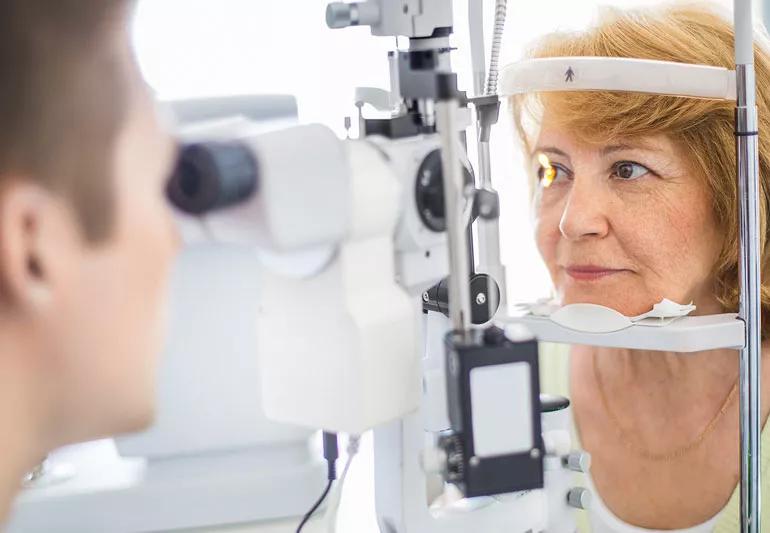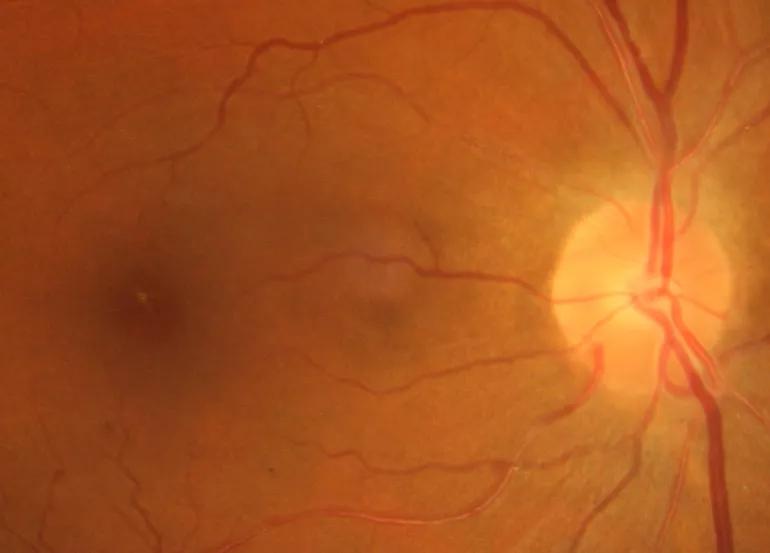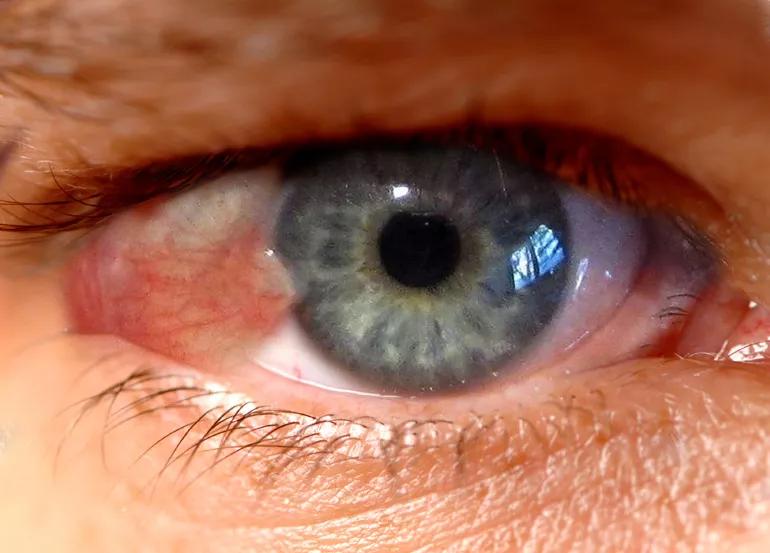More reasons to get regular eye exams

When your eyes get itchy and watery, you know it’s probably a sign that your allergies are kicking in. But did you know that your eyes can also give you clues about many other health conditions?
Advertisement
Cleveland Clinic is a non-profit academic medical center. Advertising on our site helps support our mission. We do not endorse non-Cleveland Clinic products or services. Policy
This is part of the reason why regular eye exams are an important piece of your healthcare routine.
Optometrist Kristi Stalker, OD, discusses some other health conditions that your eyes can give clues about.
Ever experience a pesky eye twitch that starts up the day before a huge presentation? It’s not just a coincidence. The most common culprits for an eye twitch are lack of sleep, too much stress or too much caffeine, Dr. Stalker says.
If it gets too bothersome, try using a cool pack on your eye to resolve the twitching. “If your whole eye is clinched shut, though, that’s a sign of a problem that needs evaluation by your doctor,” she adds.

Image content: This image is available to view online.
View image online (https://assets.clevelandclinic.org/transform/0d7e0349-e01f-4ef3-8be5-3e4af7d1c9b1/19-HEYE-1952-Diabetic-Retinopathy_jpg)
What seems like intermittent blurry vision could be a sign that someone has a diabetes-related eye problem. “Their vision might be better in the morning and blurry after they’ve had a big meal,” Dr. Stalker explains. This is because high blood sugar levels can cause the lens of the eyes to swell, making vision blurry.
Long-term high blood sugar levels can lead to something more serious called diabetic retinopathy, which can cause vision loss. If you have diabetes, it’s especially important to have an eye exam each year.

Image content: This image is available to view online.
View image online (https://assets.clevelandclinic.org/transform/2698ef72-8e8d-4373-9675-2e20fa5107a2/19-HEYE-1952-Hypertensive-Retinopathy_jpg)
Hypertension can damage the blood vessels that deliver blood to the retina. You won’t notice a difference in your eyes or vision at first, but an eye doctor may be able to detect it when they look at the vessels inside the eye.
Advertisement

Image content: This image is available to view online.
View image online (https://assets.clevelandclinic.org/transform/faf59ff4-8a48-4d80-b0b2-74e25e4bee45/19-HEYE-1952-Pinguecula_jpg)
A pink or yellow bump on the white of the eye can indicate damage to the conjunctiva from too much sunlight exposure. “They can expand and grow further in and eventually block your vision,” Dr. Stalker explains. Invest in a good pair of sunglasses that offer full UV protection and cover your eyes completely.
Seeing a few eye floaters usually isn’t a sign of anything serious, but if you notice lightning flashes or darkness in your field of vision, this is a sign of an ocular emergency that warrants immediate medical attention.
These instantaneous flashes are different than those that are a precursor of a migraine. “Sometimes, people notice a 20-minute long flickering or sparkling light that expands in size and shrinks back down again,” Dr. Stalker explains. That can be the start of an ocular migraine, which may be followed by a headache.

Image content: This image is available to view online.
View image online (https://assets.clevelandclinic.org/transform/1190f41c-b3a0-4586-9547-7c7c9017785d/19-HEYE-1952-Subconjunctive-Hemorrhage_jpg)
See a splotch of red on the white of your eye? Broken blood vessels in the eye usually result from straining (from heavy lifting or coughing or sneezing) and don’t cause permanent damage. “It looks very alarming, but usually there’s no treatment — it will resolve over the next two weeks,” Dr. Stalker says.
But if this happens multiple times, see a healthcare provider, as it could indicate a bleeding problem.
Advertisement
Learn more about our editorial process.
Advertisement

Early morning red eyes can be a sign of several conditions, like dry eyes, allergies and eye strain

See an eye specialist if your pain isn’t going away and comes with other symptoms

Your eyes could be burning because of allergies, elevated salt levels, dry eyes and more

One is a raised yellow spot on your eye, the other is a fleshy growth

When worn incorrectly, contacts can cause or worsen dry eye symptoms

Preservative-free lubricating drops, a humidifier, sunglasses and preventive medications can help with dry eyes, no matter the season

In moderation, vitamins A, C, D, E, B12 and omega-3 fatty acids can improve and maintain your eye health

Pink eye usually refers to infectious conjunctivitis, which can look similar to allergies or other infections and eye conditions

Wearing a scarf, adjusting your outdoor activities and following your asthma treatment plan can help limit breathing problems

Your diet in the weeks, days and hours ahead of your race can power you to the finish line

When someone guilt trips you, they’re using emotionally manipulative behavior to try to get you to act a certain way